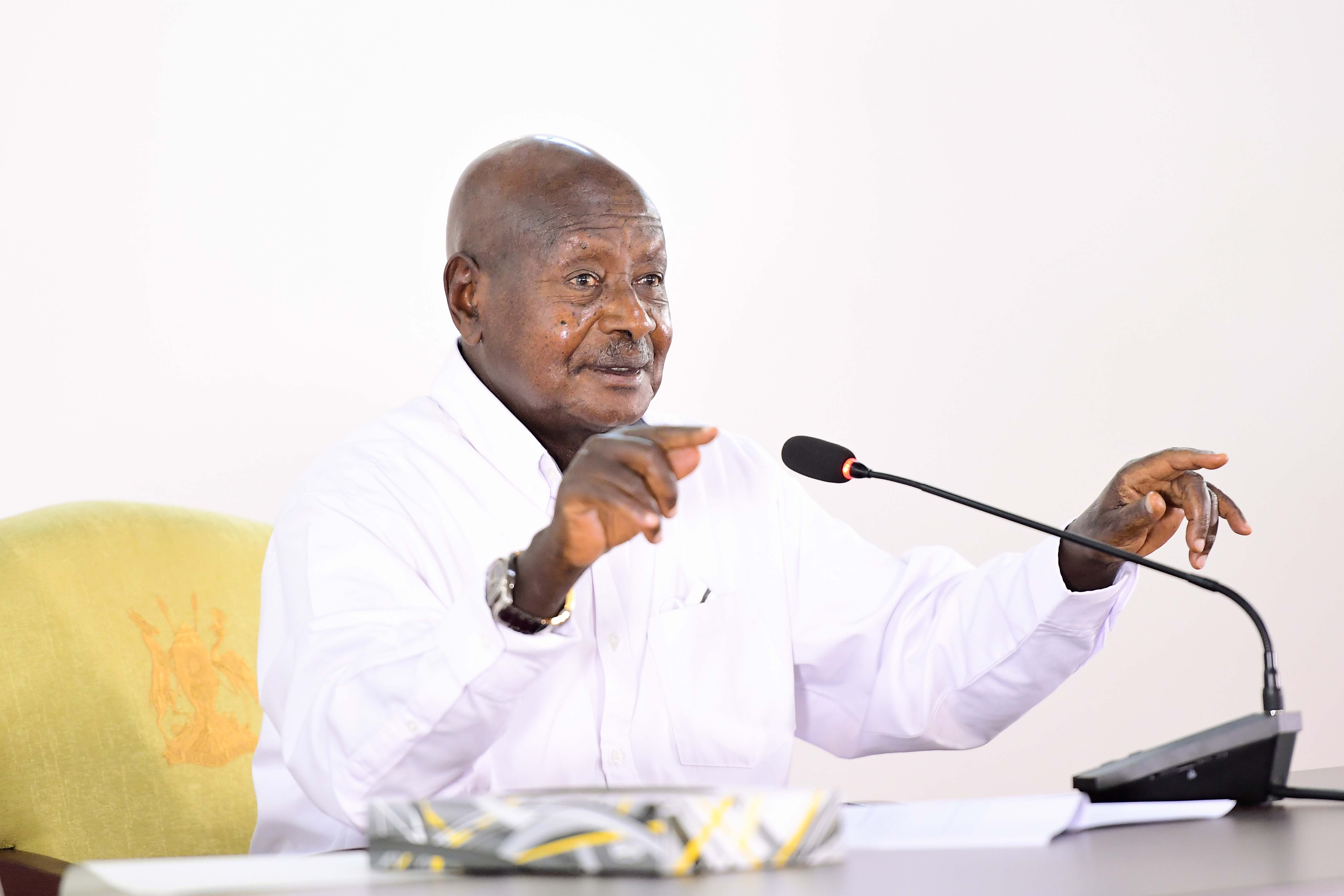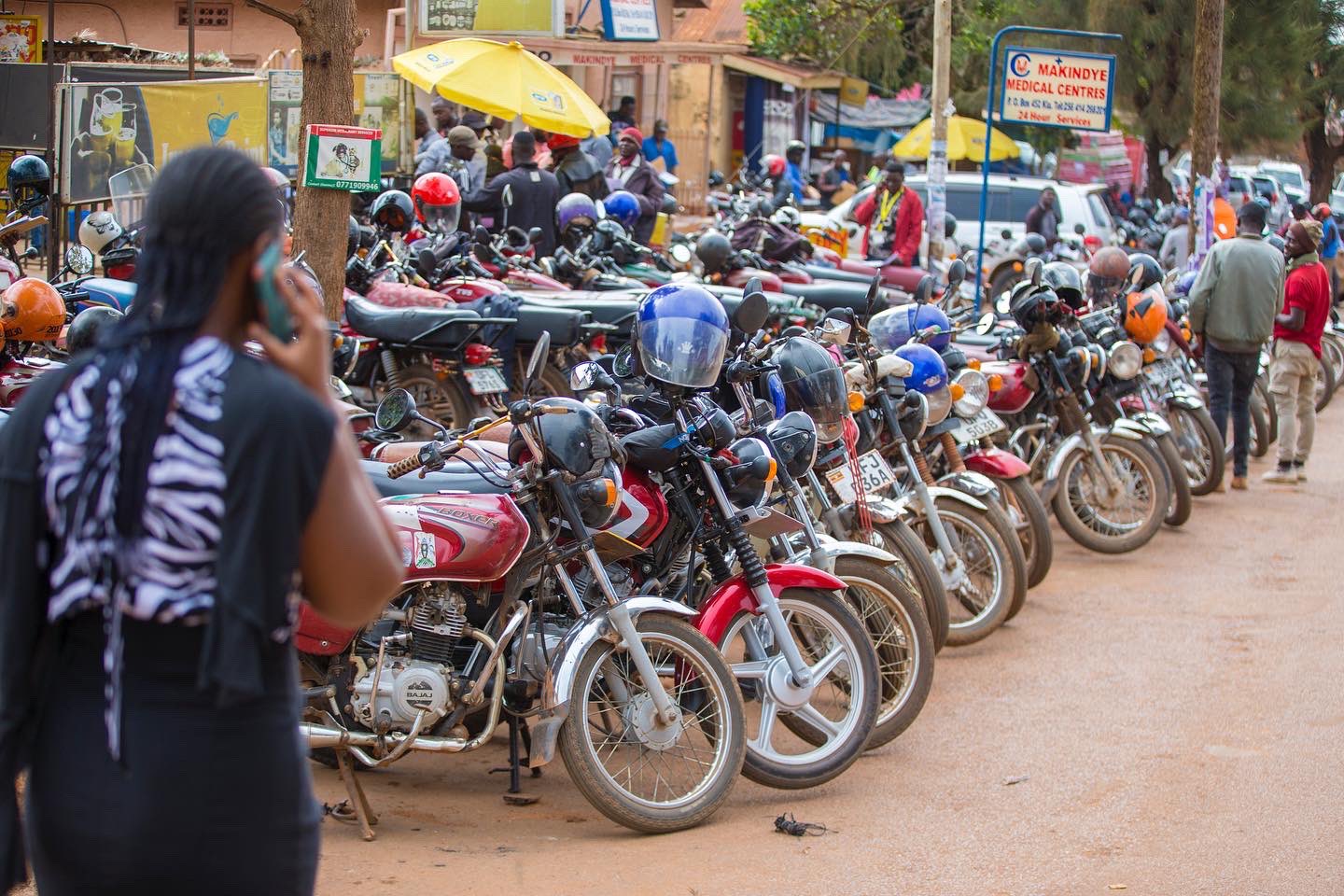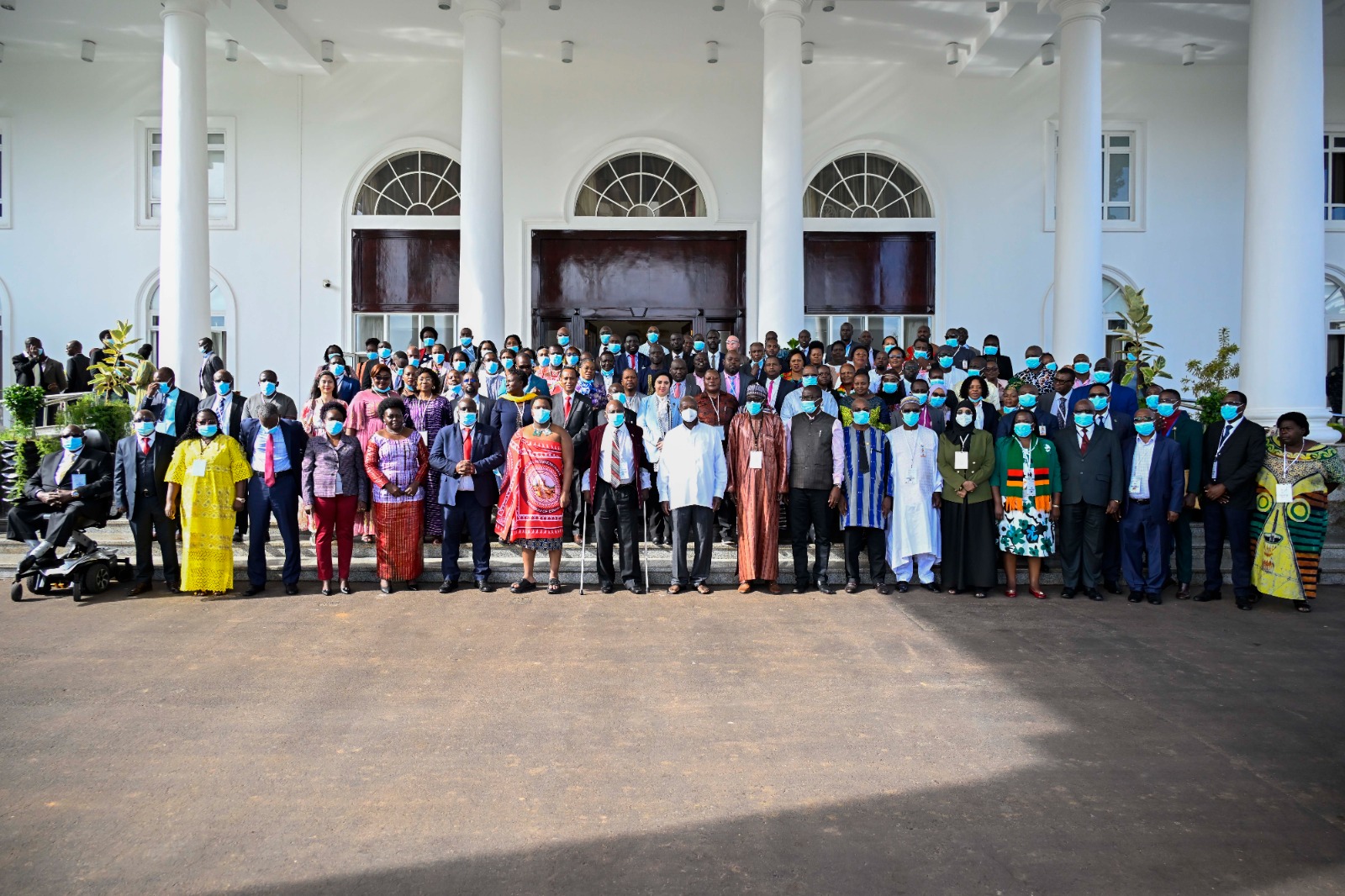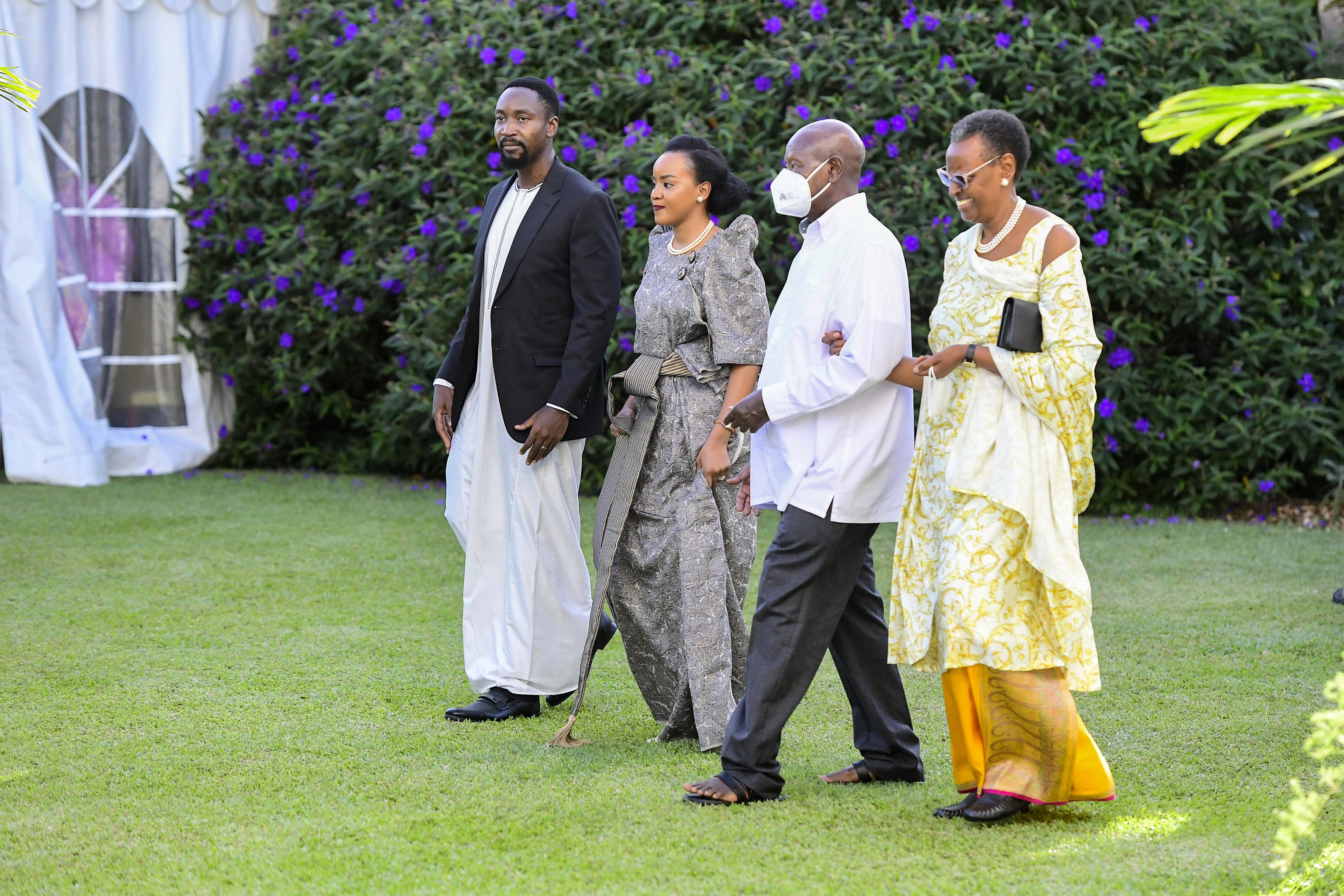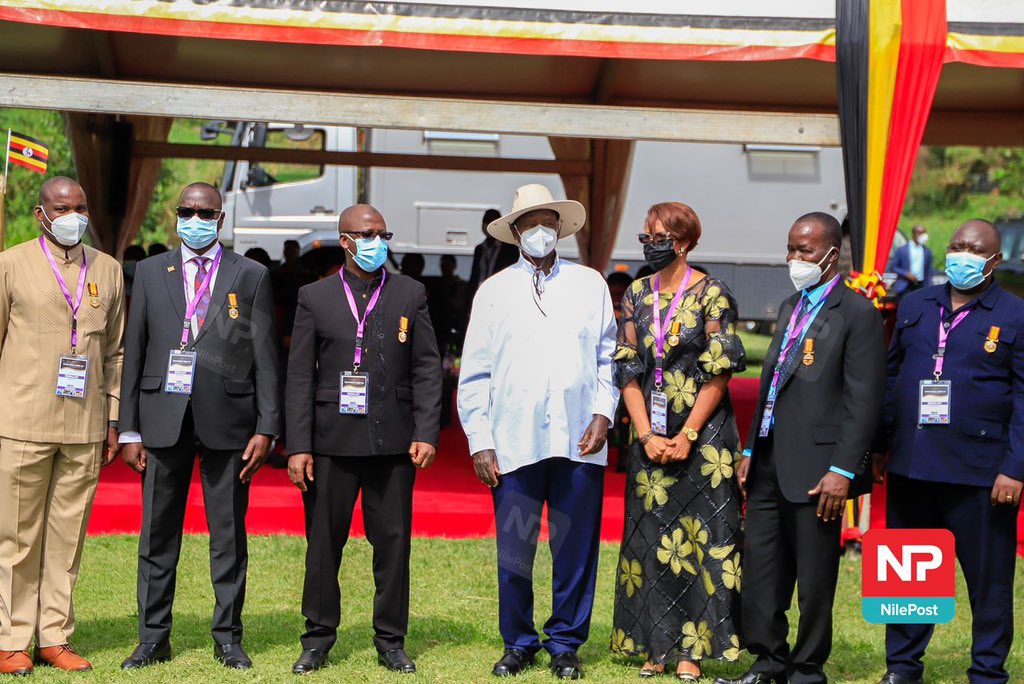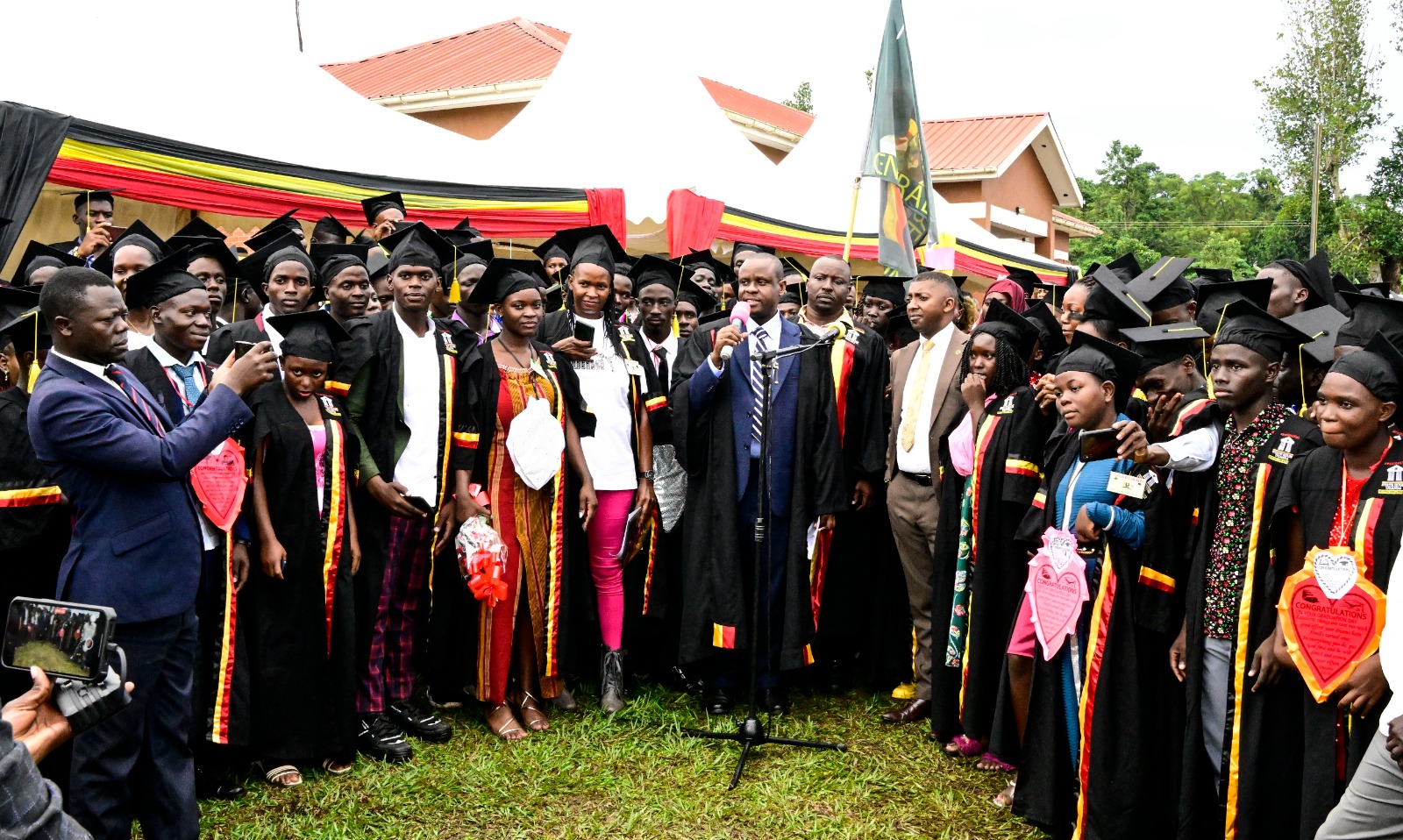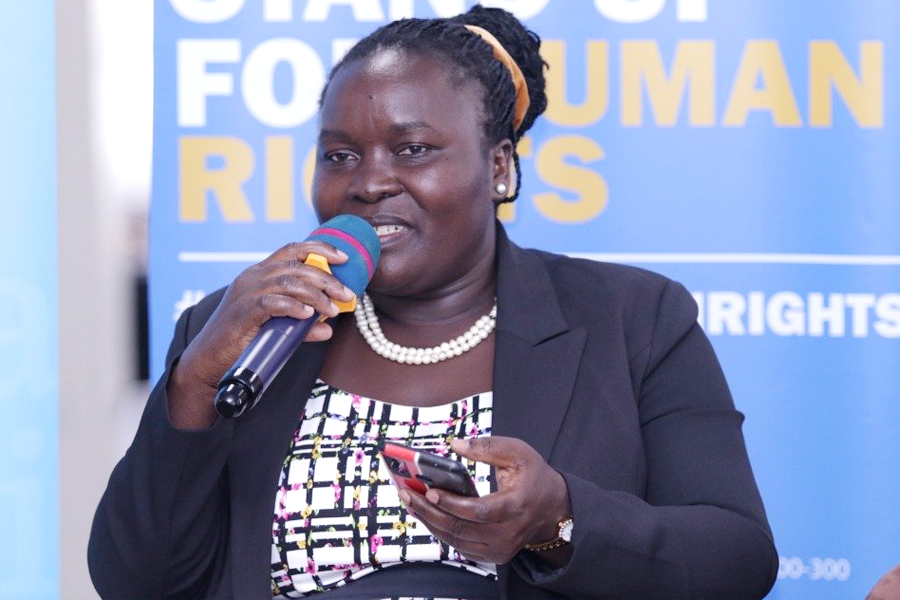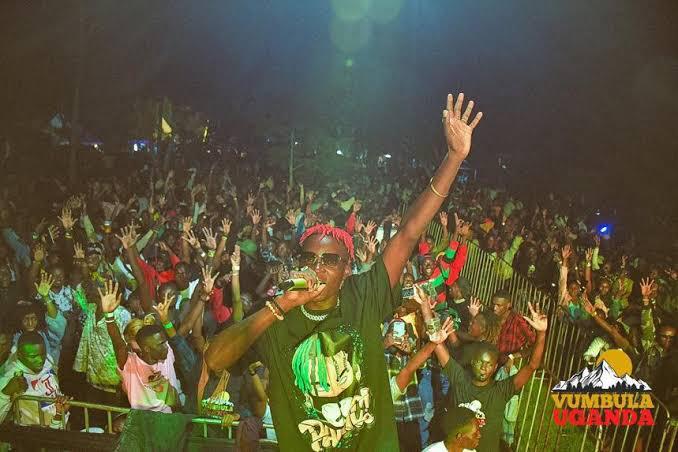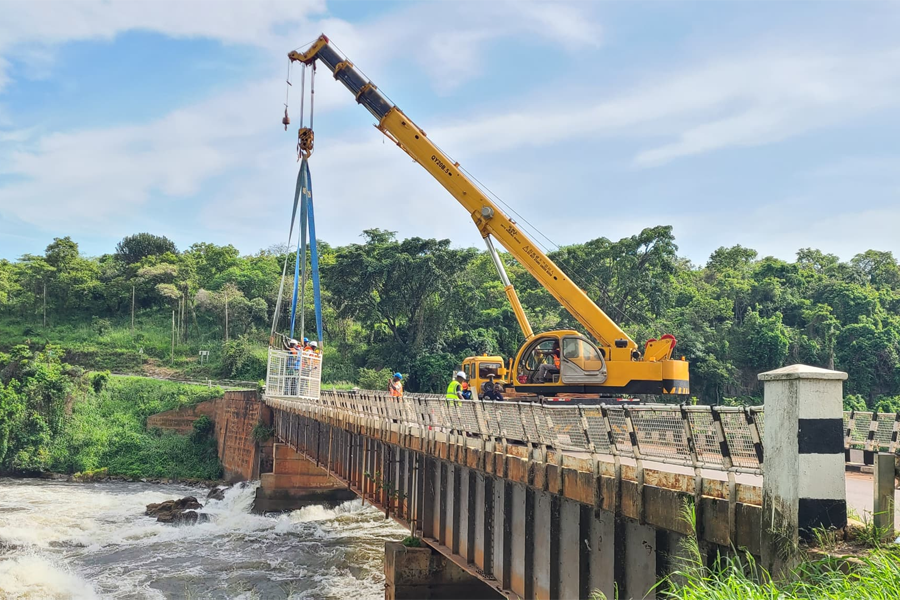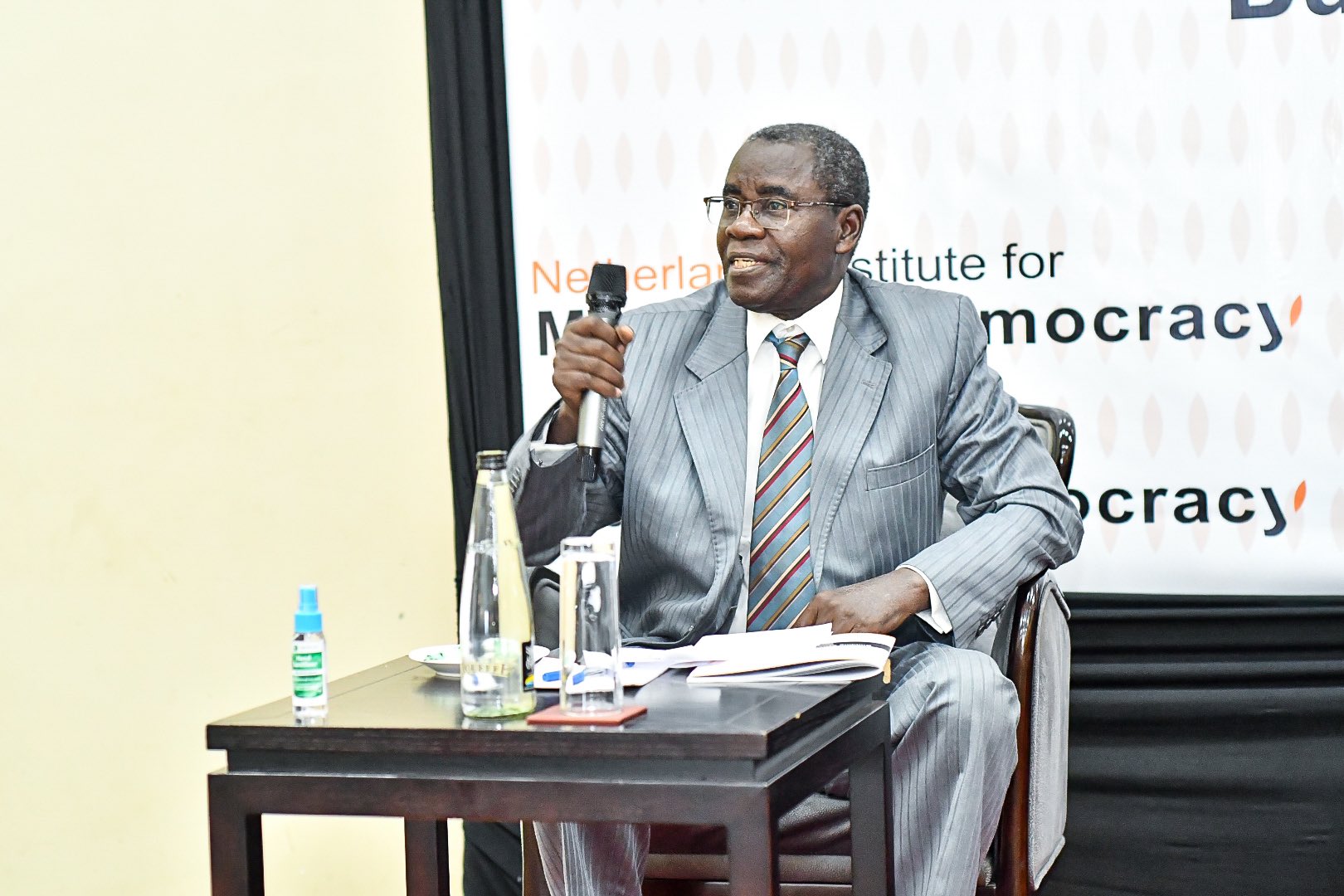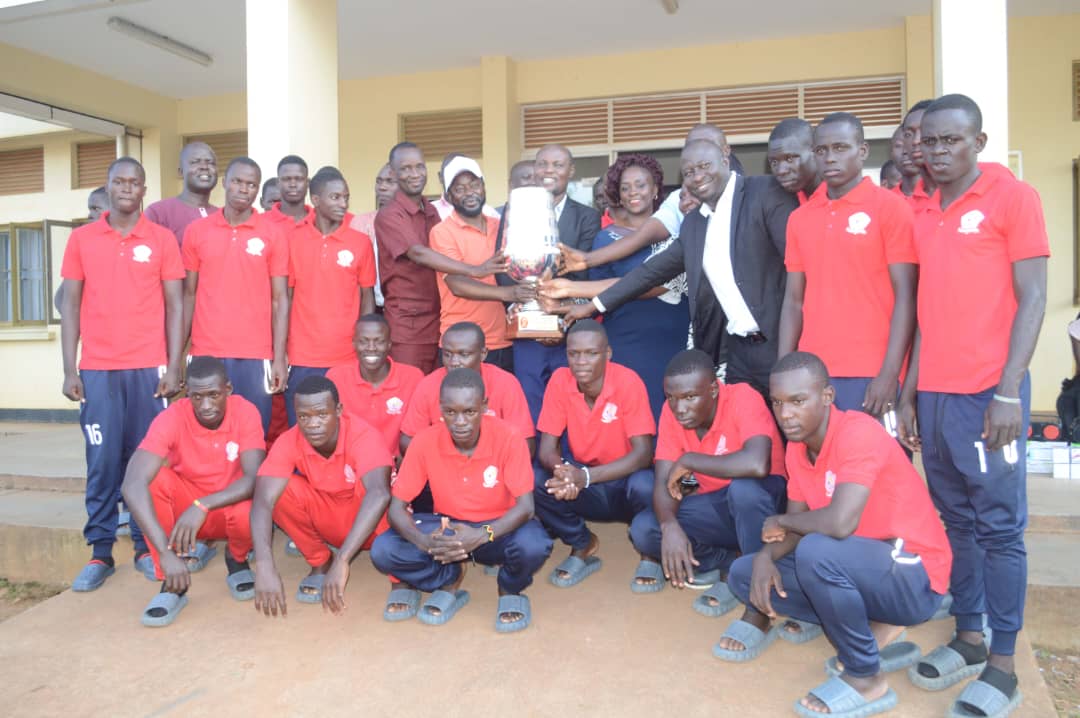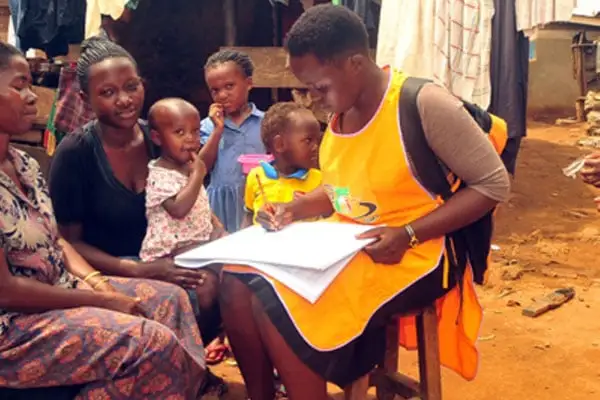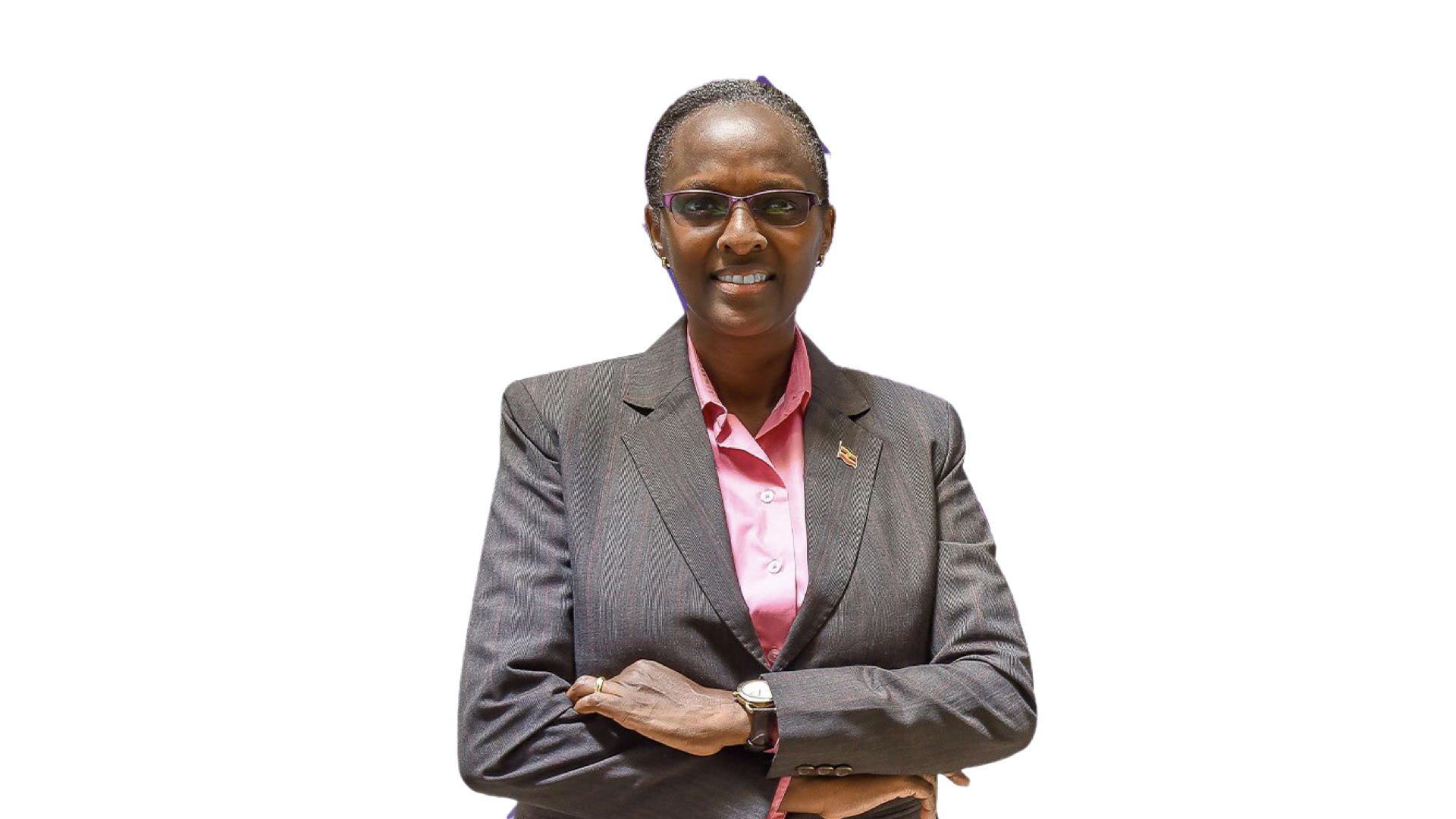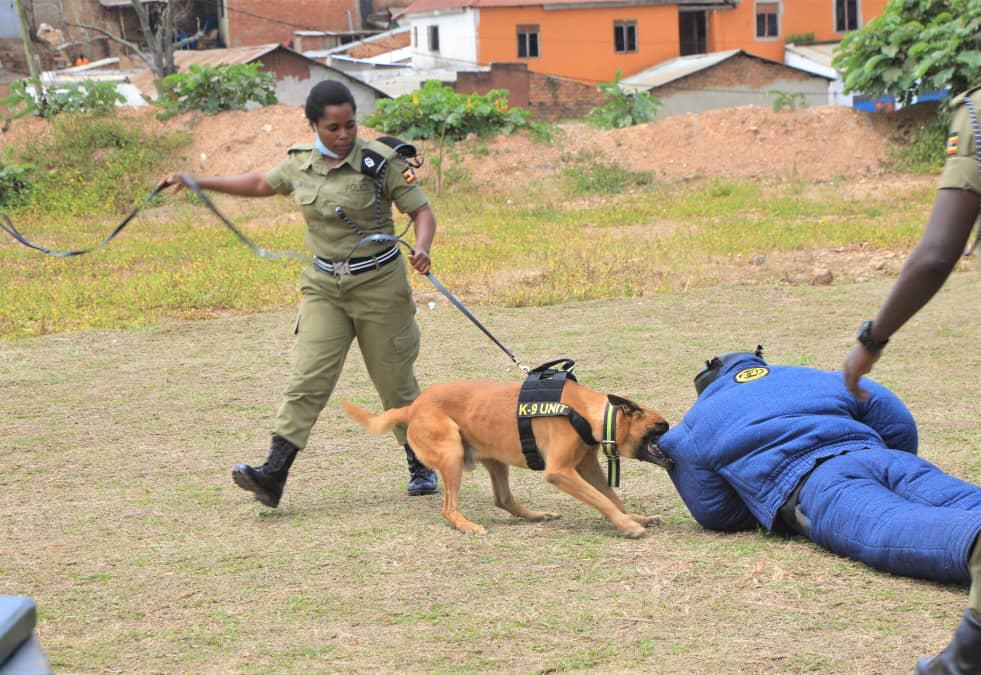Interview: Museveni would have defeated Bobi Wine in Kampala but... Covid-19, says Beti Kamya
President Museveni had just secured his victory in 2016, but as usual, he never wasted time as he immediately started strategising on how he would win the 2021 elections.
During a visit in Kawempe to launch a scheme aimed at increasing jobs for market vendors, Beti Olive Namisango Kamya, then minister for Kampala promised the president how she was going to move heaven and earth to ensure that Museveni wins the city with at least 80%.
Keep Reading
Going by the results in Kampala in the 2021 election, this prediction was way off the mark as the president lost heavily to Robert Kyagulanyi aka Bobi Wine of the National Unity Platform.
In an interview with the Nile Post, Kamya, now the minister of Lands, Housing and Urban Development, blamed Museveni's heavy loss in Kampala to among other things, the Covid-19 pandemic. Excerpts below.
***********************
In 2016, you promised that President Museveni would garner 80% votes in Kampala in 2021. This did not happen. What went wrong?
Many things actually happened. Nobody foresaw Covid-19 and its effect. The effects of Covid-19 are that many people lost jobs and they blame everything on the government. Small businesses closed down and there was so much suffering but the suffering was brought by Covid-19 not the government. The six months of lockdown impacted small businesses seriously and even big businesses. Six months in lockdown left people with nothing, no money, no capital, children were at home, families broke down, so the impact of Covid-19 was very big .
The election period happened to coincide with the Covid-19 period and the opposition decided to break all the rules. What does the government have to do? The government had to enforce all the guidelines. If the government leaves everybody to do what they want, then there is no government. The unforeseen effect of Covid-19 had a big impact on the politics of Kampala.
If you say Covid-19 led to NRM's poor performance in Kampala, what should it do to win the hearts of people come 2026?
The most important thing is to improve the lives of people because the policy of the NRM government is the private sector led economy. It's private sector led, so it’s not the government to find jobs for the people but to create an environment for the people to be creative.
What the government needs to do now is to change the mindset of the people.People should get away from that mindset and start thinking that work is actually anything that can make you some money. Even if it means picking up a beautiful leaf and drying them and turning them into something else, add value. Some people actually get a piece of wood and polish and sell it to people.
We must work on unleashing people’s creativity, everything can earn you money as long as you convince someone to like it or use it. The biggest challenge that the government needs to do now is to work on the mindset of the people and release their creativity so that people stop thinking of being employed but to create jobs.
Do you think the pandemic could have led to your loss in Rubaga North?
To be honest, I don’t know what happened but I was the leading candidate, even up to the last minute. I don't know what happened and I don’t have any information. Covid-19 also had a lot to do with that because people who suffered the impact of Covid-19 include the people of Kampala and they blame it on the government and for those of us who were supporting the government suffered the consequences.
Having lost the race for the parliamentary seat twice in your constituency in five years, what is your political future in the coming years?
You know what, I don’t do politics until the last year [towards elections]. For now, I prefer to do my job as minister. I have my community work in the church, my family, my businesses so I chose to focus on my job. We shall talk politics in 2026.
You were in opposition for a long time. In your view do you think Bobi Wine is a better, formidable opposition leader than FDC's Dr Kizza Besigye?
Well you know, I really don’t know Bobi Wine. I only know him as a person but I don’t know what he stands for apart from wanting Museveni to go.
I don’t know what else he stands for. He (Bobi Wine) just wants Museveni to go. Also, Besigye in a way I think he also wanted Museveni to go.
Museveni is very clear in what he stands for. He says that he stands for Pan Africanism, social transformation among others. I don’t know what Bobi Wine stands for and all I know is that he just wants Museveni to go which is not convincing.
 Kamya says Robert Kyagulanyi's only goal is to remove President Museveni
Kamya says Robert Kyagulanyi's only goal is to remove President Museveni
Uganda is already liberated, what does he want to liberate? I think that people are also taking advantage of the fact that Museveni’s strongest ticket is peace. I have a strong suspicion that there are people who are out there undermining peace so that they can undermine President Museveni's biggest achievement.
Do you have any regrets for leaving the opposition?
No no no, how can I regret leaving a group which has no power and joining a group which is in the authority, a group which has power? The reason that I entered politics in the first place was to be able to participate in policy formulation and you can’t do that in the opposition effectively.
The one that makes policies and implements them is the government, so I can’t regret being in a team that makes policies and good policies. I have been in opposition and I know how they work.
You recently clashed with the chairperson of Uganda Land Commission, Beatrice Byenkya over the Naguru housing project before MPs. Is there any problem between the two of you?
What happened is that the committee of parliament invited us separately. Normally what they do, they invite the minister and he or she comes with his technical staff and they present one report so if they had done that we would have harmonised our position. The committee invited the minister and then the Uganda Land Commission(ULC) separately. What do you think would happen? ULC is the technical arm of the ministry but we are working to harmonise our position.
There is a lot of land grabbing in the country, when will the government implement some of the recommendations in the Justice Catherine Bamugemereire’s report?
That report has got to be discussed first by the cabinet.
Justice Bamugemereire submitted her report to the president because he is the one who instituted the commission of inquiry, so the next thing is to table the report before the cabinet for discussion and come out with a white paper.
I think that what is going to be done soon, the outcome from the cabinet decision will be implemented at different levels.
Some decisions require legislation which will be taken to parliament to enact laws, some recommendations require administrative execution which means that the cabinet might just discuss it and the minister issues statutory instruments.
I have been instructed by the president to take a paper to cabinet seeking to establish a cabinet committee to discuss and interrogate the report. It’s a huge report, it took her (Bamugemereire) three years to investigate and compile so it must be given the attention it deserves.
As we wait for the implementation of the report, what has the ministry done to mitigate land grabbing in the country?
What we have done first of all is to sensitise people. People were not aware that there are stringent laws on land eviction. One could just walk, buy a piece of land and chase away everybody. You can’t do that if that piece of land has Bibanja holders (squatters), they cannot be evicted.
What we have done is to sensitise people about the law, not just the people, but also law enforcement as well because the problem we have is that even the law enforcement agencies like police do not seem to know the law or if they know, they need to be refreshed and that is what we are doing.
You don’t just walk to someone and say, 'I want you out of this place tomorrow.' There must be a court order and even when you get a court order, you must give notice of not less than 90 days and that court order comes with a court bailiff who is assigned that duty of eviction.
The court bailiff must know that he or she can’t evict people before 8.00 am in the morning and after 6.00pm in the evening.
What happened to “Lunda project” that you started to help the poor when you represented Rubaga North?
Ooh yes, it’s going on every Wednesday. I look for some community development programmes and I share them with the people. I would like to invite you to our offices which are situated in Bulange, Mengo.
You will see and witness what we mean. We don’t only work when we are in office but we can also work when we are not in the office because we have some influence of mobilising resources and sharing them with the people.
I give the women poultry, I give them training, I give bursaries, I help people to get visas, passports, jobs. I do a lot of work in the community.
What are some challenges that you are facing in the Ministry of Lands?
There are a lot of challenges because to tell you the truth, corruption is embedded in the core of the ministry. There is so much corruption.
Corruption in a sore wound, cancer which is eating up this country which has also found a home in the Ministry of Lands.
We need to work on that. Another big challenge in the ministry is middlemen, we need to think about these middle men seriously and work out how to deal with them. I think we need a law that will regulate the activities of the middlemen.


